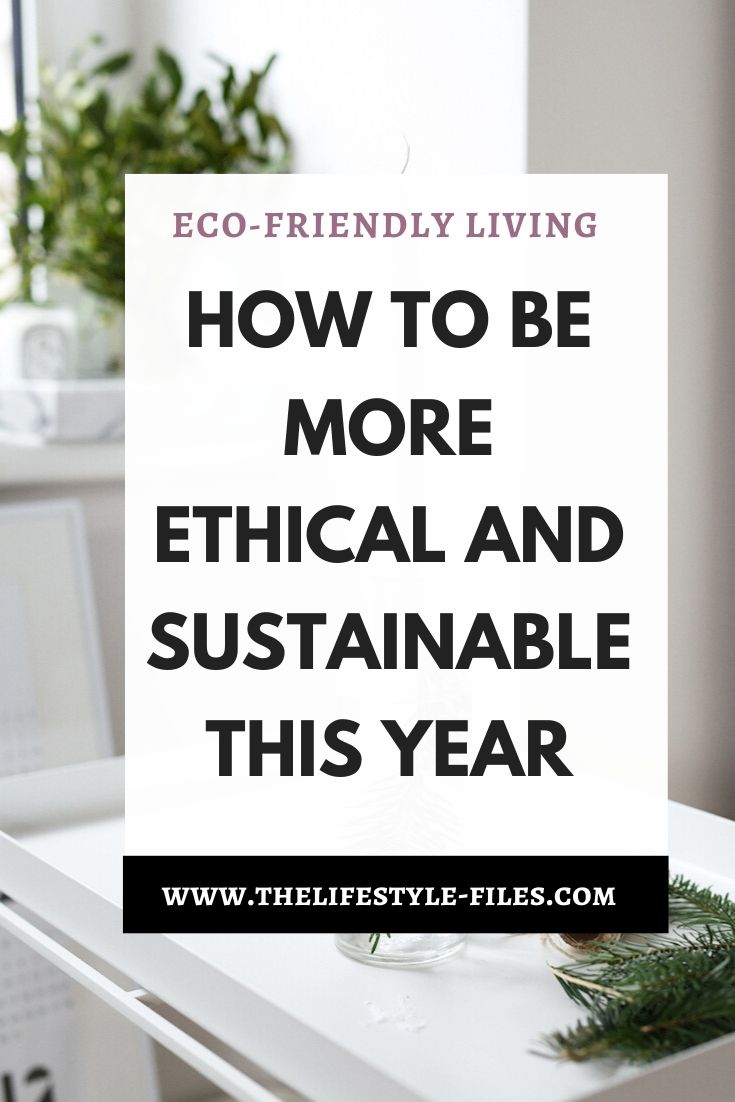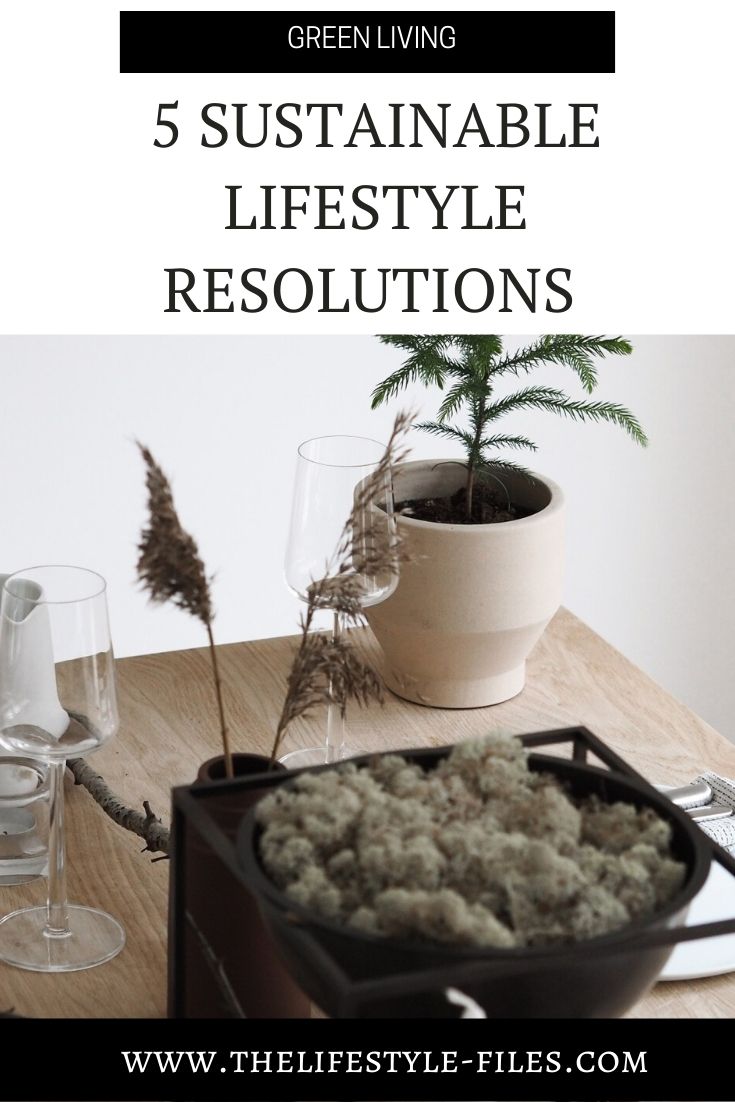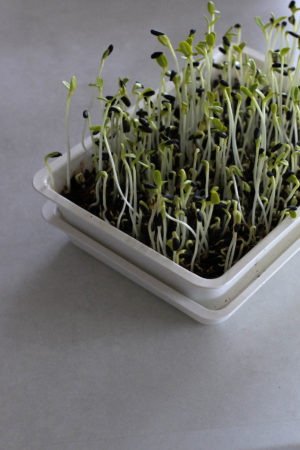A year ago, I shared my personal sustainable living action plan for 2019. Of course, setting goals is always the easy part – following up on them is a different matter.
Before I jump into my sustainability goals for 2020, it’s only fair to take stock and review how last year’s plan has gone.
 Photo by Nathan Dumlao on Unsplash
Photo by Nathan Dumlao on Unsplash
2019 – The year in review
Research, learn, and ask
2019 was definitely a year of education for me. This was not the year I first became aware of environmentalist issues, but it was definitely the year when I began to understand their scope and intersectional nature. The more I learned about the human rights aspects of climate change and the underlying economic and social structures, the more I realized focusing on tiny individual changes will not be enough – we really need to uproot the whole system. Probably the most transformative work I’ve read last year was Naomi Klein’s book This Changes Everything: Climate vs. Capitalism. It’s such an enlightening read that makes a strong case for why our current globalist and capitalist system is fundamentally at odds with sustainability and basic human rights. Really, really recommend everyone to put this on your 2020 reading list.
Find more ways to reduce my waste
Made some progress, but there’s definitely still room for improvement. Last year, I cut out the plastic bottles, switched to bar soap and reusable makeup remover pads, took reusable utensils on flights, took jars when I shopped for dried goods, nuts and seeds, and used scarves for gift wrapping.
One of the areas I started to focus on was reducing food waste (here’s a short summary on why it’s a huge issue) and this is something I want to get better at this year.
Adopt an even more plant-based diet
Anyone who’s ever read an article on the best ways to reduce our environmental footprint already knows that eating less meat is among the top three things we can do as individuals. While I’ve never been a huge meat eater, one of my resolutions in 2019 was to cut back on it even more. I started out with eating meat once or twice a week, but then a curious thing happened. The less meat I ate, the less I actually missed it, and as of January 2020, I haven’t eaten poultry or red meat in 4 months.
I’m really not a fan of using labels for my own lifestyle, but I guess you could call my current diet a pescatarian one – it’s mostly vegetarian, but I still occasionally eat fish and some seafood. It’s still not ideal from an environmental point of view as overfishing and other unsustainable fishing practices are highly problematic, but as this is a fairly new development for me, I’ll be focusing on keeping up this habit and looking into other dietary changes, like reducing my dairy intake or researching more sustainable local fish sourcing options.
Use my car less
My goal was to eliminate the “unnecessary’ car rides (provided there are necessary car rides), and I do feel I made some progress in this. The fact that I work from home, of course, helps a lot, but I also started to get back into the habit of using more public transport. Originally, I wrote that I was still probably going to use my car a lot, but it turned out that I actually used it a lot less than I thought I would.
This was a valuable insight, as I realized sometimes we keep up lifestyle habits based on false or greatly exaggerated assumptions, in this case that I need a car because I use it that often. And this might have consequences for the future – see below in my 2020 resolutions.
Reform my water drinking habits
The goal pretty much achieved. I’ve completely stopped buying bottled water for home and switched to drinking tap water all the time (the sprucing up the taste with herbs, lemon, and fruit trick worked). I took my reusable water bottle with me on most of my travels as well and only bought bottled water or drinks when I really couldn’t refill it.
Research and opt for energy-efficient technologies
I definitely kept this one in mind when we bought our new household items and opted for the highest energy ratings possible. By the way, this research was often fairly frustrating as even though the EU has some regulations regarding energy rating labeling requirements, some companies take this far too liberally and do not make it easy for the consumer to find the information, especially online. This is what happens when regulations fail to set very concrete requirements.
I’m bringing my ‘research smaller solar chargers” action step into 2020, as I admit, I haven’t done any of that last year.
My 2020 sustainability goals
Switch into activist mode
A lot of things happened in 2019 on the climate change front. It seems the issue has finally broken into mainstream political and social discussions. Millions of people marched around to world to push politicians to take climate change seriously. Many conferences and global meetings were held, thousands of articles were published that detailed the grim future we’re facing. We said no to straws, switched to reusable bags, participated at Veganuary and Plastic-Free July, joined sustainability challenges, asked brands ‘who made our clothes’. And yet, sometimes it feels like we’re getting nowhere and it is a very frustrating feeling.
While I’m still a strong proponent of individual lifestyle changes, lately I’ve reached a point where I would like to do more. As important as our individual actions are, alone, they cannot save the world. We need to make climate change, human rights abuses, economic and social inequality top priority issues and we need to push politicians and corporations to make massive changes or else we’re all doomed.
I’m not massively optimistic, but still feel that we might be near a tipping point. Thus we need to keep up the pressure, keep the issues in the public limelight, and join forces to push through legislation and business solutions.
So, this year, I’m focusing on switching into activist mode. From spreading awareness, supporting local initiatives, calling upon decision-makers to signing petitions, donating, volunteering, protesting – whatever it takes to support those at the forefront of this fight.
Continue my low-waste journey
Zero waste is pretty much an unattainable goal, but that doesn’t mean we cannot continuously try to reduce our waste. My low-waste lifestyle goals this year are:
- Try natural or DIY cleaning alternatives to bottled solutions
- Try shampoo bars – I switched to bar soaps for the body, but I still buy bottled shampoos and conditioners, so will see what low-waste alternatives are there (though first I’m gonna use up all the bottles I have now)
- Completely eliminate food waste – as opposed to general waste, I think it’s perfectly achievable to almost totally eliminate the food waste we generate, all we need is smarter planning and some clever food waste upcycling solutions. Number 1 on my list is to find a use for the pulp I generate when making fresh juices
Learn more about and practice sustainable eating
The potential positive environmental impact of our dietary and eating choices cannot be emphasized enough. As I said, I’ve made progress in reducing my meat consumption, I try to shop local, and I eat seasonally, but there’s room for improvement. I’d like to learn more about where my various food items come from and research local shopping and sourcing options. I’d like to get better at cooking and make even more things from scratch (my Mum often makes jams, preserve, and various spreads, and I’d like to learn how to do that).
I’d also like to make a mini edible garden at home – so far I have an herb garden (OK, bit of an exaggeration as currently, it consists of a single rosemary plant as the other herbs died on me), but I’d like to research what I can realistically try to plant – and keep alive on a balcony.
Support more ethical and sustainable companies
I have mixed views about the emerging trend of sustainable brands. On one hand, it’s great to find more eco-friendly and ethical alternatives, on the other the practice of greenwashing is also becoming more mainstream, with a lot of businesses pretending they are more sustainable than they actually are. Also, it should never be forgotten that we cannot shop our way out of the climate crisis, and the general goal should be to reduce our consumption, not shop the same amount just “green” – whatever that means.
With that said, we’re still consumers and however mindful we are, we’re still going to buy and shop, so it’s important to make mindful decisions. So in 2020, I’d like to:
- Learn more about the divestment movement and research ethical banking options (that don’t invest in the fossil fuel industry)
- Stop buying from Amazon (I’ll share in another post what I’m currently buying from Amazon and why it requires a bit more research to find a substitute)
- Find and support more honest sustainable and ethical brands
+1: Selling one of our cars
I’m putting this on the list because this will probably happen sometime in the near future, though I’m not sure it’ll be this year. As I said above, after closely monitoring our actual driving habits, we decided it’s absolutely not necessary for us to maintain two separate cars. The plan is to sell the current cars and buy a hybrid car. Second-hand, of course, as I refuse to buy a new one.
When we do this will depend on the financial priorities at the time. First, I wanna finish our apartment, finalize some travel plans for 2020 and 2021, go over our investment plans for the next two years, and then we’ll see whether the car change will happen this year or next. Until then, I’m focusing on driving a lot less.
Do you have a sustainable lifestyle goal for 2020?





